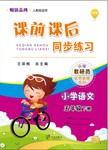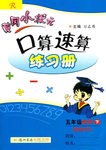
 er all of our questions. If we ask, “Why does the ocean water taste salty” scientists will say that the salt comes from rocks. When a rock gets very hot or very cold, it cracks. Rain falls into cracks. The rain then carries the salt into the earth and into the rivers. The rivers carry the salt into the ocean. But then we ask , “What happens to the salt in the ocean? The ocean does not get saltier every year.” Scientists are not sure about the answer to this question.
er all of our questions. If we ask, “Why does the ocean water taste salty” scientists will say that the salt comes from rocks. When a rock gets very hot or very cold, it cracks. Rain falls into cracks. The rain then carries the salt into the earth and into the rivers. The rivers carry the salt into the ocean. But then we ask , “What happens to the salt in the ocean? The ocean does not get saltier every year.” Scientists are not sure about the answer to this question.| A.People are curious in the same way. |
| B.People in different countries are interested in different things. |
| C.Men and women are curious about different things. |
| D.People of different ages are interested in different things |
| A.the earth , the oceans and the sky | B.man-made things |
| C.plants and animals | D.ocean water |
| A.more nutrition and oxygen | B.more signals |
| C.more salt | D.water |
| A.in wet regions | B.in dry regions |
| C.at very high or very low temperatures | D.when salty water falls in |
| A.they cannot explain many things | B.they know nothing about the world |
| C.they know little about the world | D.they want to be scientists |
 课前课后同步练习系列答案
课前课后同步练习系列答案 课堂小作业系列答案
课堂小作业系列答案 黄冈小状元口算速算练习册系列答案
黄冈小状元口算速算练习册系列答案 成功训练计划系列答案
成功训练计划系列答案 倍速训练法直通中考考点系列答案
倍速训练法直通中考考点系列答案 一卷搞定系列答案
一卷搞定系列答案 名校作业本系列答案
名校作业本系列答案科目:高中英语 来源:不详 题型:阅读理解
 Broken rubber bands and flat tires requiring replacement could soon be a thing of the past.
Broken rubber bands and flat tires requiring replacement could soon be a thing of the past. French researchers have developed a new kind of rubber that can repair itself when broken.The new rubber is made from widely available materials including vegetable oil and a common industrial chemical.All the materials are considered safe to the environment and can be easily reused.
French researchers have developed a new kind of rubber that can repair itself when broken.The new rubber is made from widely available materials including vegetable oil and a common industrial chemical.All the materials are considered safe to the environment and can be easily reused. The best part is that the new rubber can be repaired and used again and again without losing its strength or ability or stretch.When cut, the rubber can be made new again, simply by pressing the two broken ends back together.
The best part is that the new rubber can be repaired and used again and again without losing its strength or ability or stretch.When cut, the rubber can be made new again, simply by pressing the two broken ends back together. The product can be repaired at room temperature, around twenty degrees Centigrade;other self-healing materials require higher temperatures for repair.
The product can be repaired at room temperature, around twenty degrees Centigrade;other self-healing materials require higher temperatures for repair. Traditionally, rubber substances are made from huge molecules(分子)connected by strong chemical links, or bonds.The new rubber is made of smaller molecules.The molecules are linked together using hydrogen bonds.When connected in this way, the molecules act like one long molecule, forming what is called supramolecular networks(超分子网).When the rubber is cut, the molecules attempt to connect with whatever molecule is near them.When pressed together, the molecules are able to repair themselves at the molecular level, making the repaired rubber like new.
Traditionally, rubber substances are made from huge molecules(分子)connected by strong chemical links, or bonds.The new rubber is made of smaller molecules.The molecules are linked together using hydrogen bonds.When connected in this way, the molecules act like one long molecule, forming what is called supramolecular networks(超分子网).When the rubber is cut, the molecules attempt to connect with whatever molecule is near them.When pressed together, the molecules are able to repair themselves at the molecular level, making the repaired rubber like new. However, time is an important element in the process.If the broken ends are not brought together quickly, a repair is not possible.This is because molecules will form bonds with molecules on their own side.The inventors say the surfaces of the rubber can be repaired within a week of being separated.
However, time is an important element in the process.If the broken ends are not brought together quickly, a repair is not possible.This is because molecules will form bonds with molecules on their own side.The inventors say the surfaces of the rubber can be repaired within a week of being separated. The rubber is the creation of scientists at the Industrial Physics and Chemistry Higher Education Institution in Paris.The organization is part of France’s National Center for Scientific Research.The new material is described in greater detail in the research publication Nature.
The rubber is the creation of scientists at the Industrial Physics and Chemistry Higher Education Institution in Paris.The organization is part of France’s National Center for Scientific Research.The new material is described in greater detail in the research publication Nature. 小题1:According to the introduction, which of the following is NOT the advantage of the new rubber?
小题1:According to the introduction, which of the following is NOT the advantage of the new rubber?
A.It can be made as easily as common rubber. | B.It is environmentally-friendly. | C.It can repair itself at room temperature. | D.It is made of smaller molecules. |
 小题2:What does the 5th paragraph mainly tell us?
小题2:What does the 5th paragraph mainly tell us?
A.Why the new rubber is unique. | B.Why the new rubber can repair itself. | C.The new rubber is made from huge molecules. | D.The new rubber is different from the common rubber. |
 小题3:If we want to know more about the technology of this kind of new rubber, where can we get the information?
小题3:If we want to know more about the technology of this kind of new rubber, where can we get the information?
| A.In the researchers’ diary. | B.In a guide book. | C.In a research magazine. | D.In a newspaper. |
查看答案和解析>>
科目:高中英语 来源:不详 题型:完形填空
 ou in college at such a young, 40 age ?”I asked. “I always dreamed of having a 41 experience and now I’m getting 42 !” she told me.
ou in college at such a young, 40 age ?”I asked. “I always dreamed of having a 41 experience and now I’m getting 42 !” she told me.| 小题1: |
|
| 小题2: |
|
| 小题3: |
|
| 小题4: |
|
| 小题5: |
|
| 小题6: |
|
| 小题7: |
|
 . learned D. debated
. learned D. debated| 小题9: |
|
| 小题10: |
|
| 小题11: |
|
| 小题12: |
|
| 小题13: |
|
| 小题14: |
|
| 小题15: |
|
| 小题16: |
|
| 小题17: |
|
| 小题18: |
|
| 小题19: |
|
| 小题20: |
|
查看答案和解析>>
科目:高中英语 来源:不详 题型:阅读理解
| A.To determine the position of a ship |
| B.To carry message across the ocean |
| C.To predict the direction of a ship. |
| D.To find the direction of a current |
| A.U.S. ships were longer than British ones. |
| B.British ships could sail the Atlantic faster than U.S. ones. |
| C.U.S captains knew more about maps. |
| D.U.S. ships could sail the Atlantic faster than U.S. ones. |
| A.A map of the Atlantic Ocean. | B.A map of the Gulf Stream.. |
| C.A map of ocean currents. | D.A map of his first voyage. |
查看答案和解析>>
科目:高中英语 来源:不详 题型:阅读理解
 t least twice a day.The most popular lie was saying you had no mobile phone signal.with one in four people admitting regularly using the little white He.It usually came after they hit the "ignore" button when their mobile rang.
t least twice a day.The most popular lie was saying you had no mobile phone signal.with one in four people admitting regularly using the little white He.It usually came after they hit the "ignore" button when their mobile rang. ny cash on me" when asked for money by tramps (流浪者).beggars and Big Issue sellers."Nothing's wrong - I'm fine" came third followed by "You look lovely" and "Nice to see you".
ny cash on me" when asked for money by tramps (流浪者).beggars and Big Issue sellers."Nothing's wrong - I'm fine" came third followed by "You look lovely" and "Nice to see you". st good friends" and "We'll have to meet up soon"."I'm on my way" and "No, your bum doesn't look big in that" completed the top ten.
st good friends" and "We'll have to meet up soon"."I'm on my way" and "No, your bum doesn't look big in that" completed the top ten.| A.really has no signal | B.can't get the text |
| C.has a battery failure | D.answers the call |
| A.there're more women liars | B.fewer women liars are found out |
| C.women tell less harmful lies | D.women are harder to convince |
| A.inviting a friend to dinner | B.responding to an e - mail |
C.coming to a party on  time time | D.cleaning one's room |
| A.3rd and 8th | B.5th and 10th |
| C.4th and 9th | D.5th and 12th |
| A.puzzling | B.disgusting | C.impossible | D.reasonable |
查看答案和解析>>
科目:高中英语 来源:不详 题型:阅读理解
| A.Volunteers didn’t write down about their day offline. |
| B.Volunteers weren’t allowed to use any media for 24 hours. |
| C.Volunteers were followed around by Dr Roman Gerodimos. |
| D.Only volunteers in the UK took part in Unplugged experiment. |
| A.Anxious. | B.Lonely | C.Bored. | D.Despaired. |
| A.The media ban affected his temperature. |
| B.His work went on smoothly without the media. |
| C.His work was carried on hard without the media. |
| D.His life was empty without the radio or newspapers. |
| A.People should use the media devices reasonably. |
| B.People can easily survive the media devices addict. |
| C.People can spend more time sleeping in the future. |
| D.People spend about half the time using the media devices. |
| A.newspaper ad | B.book review |
| C.news report | D.science fiction story |
查看答案和解析>>
科目:高中英语 来源:不详 题型:阅读理解
| A.Dolphins and sharks show up in deep water. |
| B.Tens of thousands of marine animals are found dead. |
| C.Sea creatures flee from oil spill,gathering near seashore. |
| D.Birds crawl(爬)deep into caves. |
| A.the lack of environmental sense of BP |
| B.the nearly two-mouth-old oil spill |
| C.the crowding marine life |
| D.the damage of Mexico Gulf ecosystem |
| A.Disappointed | B.Depressed | C.Neutral | D.Worried |
| A.marine scientists have seen some strange phenomena. |
| B.the disaster has little influence on dolphins. |
| C.a three-person crew reached no conclusion. |
| D.BP will pay much money according to the number of dead wildlife there. |
查看答案和解析>>
科目:高中英语 来源:不详 题型:阅读理解
| A.couldn’t fly high | B.got badly hurt |
| C.left his parents accidentally | D.couldn’t live in trees |
| A.Troy doesn’t show any interest in flying high up in the sky. |
| B.Gareth Tonen has spoiled Troy by offering him everything. |
| C.Gareth Tonen is pleased to see Troy fly along at his side. |
| D.Troy would like his owner Gareth Tonen to climb up trees. |
| A.he has developed the symptom of fearing heights. |
| B.he has been raised since he was very small. |
| C.he can’t learn how to fly higher than his owner. |
| D.he doesn’t want to fly among trees hunting for food. |
| A.To set an example of flying high to Troy. |
| B.To see how high Troy can really fly. |
| C.To teach Troy how to get meals in high trees. |
| D.To get Troy back down to cure his fear of heights. |
查看答案和解析>>
科目:高中英语 来源:不详 题型:阅读理解
| A.The Words That Could Encourage Your Child |
| B.Intelligence Says All |
| C.High and Low Achievers |
| D.Start Early, Learn More |
| A."You're so brilliant - you passed that exam without really studying!" |
| B."With more efforts, you can achieve more!" |
| C." You combine study with entertainment so well!" |
| D."You study so hard even when you are so good at it!" |
| A.simple | B.complicated | C.obvious | D.mysterious |
| A.Because they are born with great talent. |
| B.Because they start better than others. |
| C.Because they spend more of their spare time practicing what they have learnt. |
| D.Because they improve themselves at almost the same rates. |
查看答案和解析>>
湖北省互联网违法和不良信息举报平台 | 网上有害信息举报专区 | 电信诈骗举报专区 | 涉历史虚无主义有害信息举报专区 | 涉企侵权举报专区
违法和不良信息举报电话:027-86699610 举报邮箱:58377363@163.com